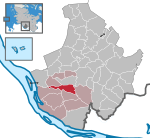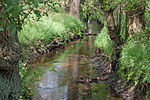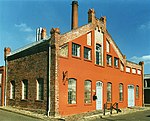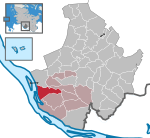Geest und Marsch Südholstein
Pinneberg district geography stubsÄmter in Schleswig-Holstein

Geest und Marsch Südholstein (before 1 January 2017: Moorrege) is an Amt ("collective municipality") in the district of Pinneberg, in Schleswig-Holstein, Germany. The seat of the Amt is in Moorrege. The Amt Geest und Marsch Südholstein consists of the following municipalities: Appen Groß Nordende Haselau Haseldorf Heidgraben Heist Hetlingen Holm Moorrege Neuendeich
Excerpt from the Wikipedia article Geest und Marsch Südholstein (License: CC BY-SA 3.0, Authors, Images).Geest und Marsch Südholstein
Ohlenkamp, Geest und Marsch Südholstein
Geographical coordinates (GPS) Address Nearby Places Show on map
Geographical coordinates (GPS)
| Latitude | Longitude |
|---|---|
| N 53.667 ° | E 9.667 ° |
Address
Ohlenkamp
Ohlenkamp
25436 Geest und Marsch Südholstein, Heidrege
Schleswig-Holstein, Germany
Open on Google Maps









